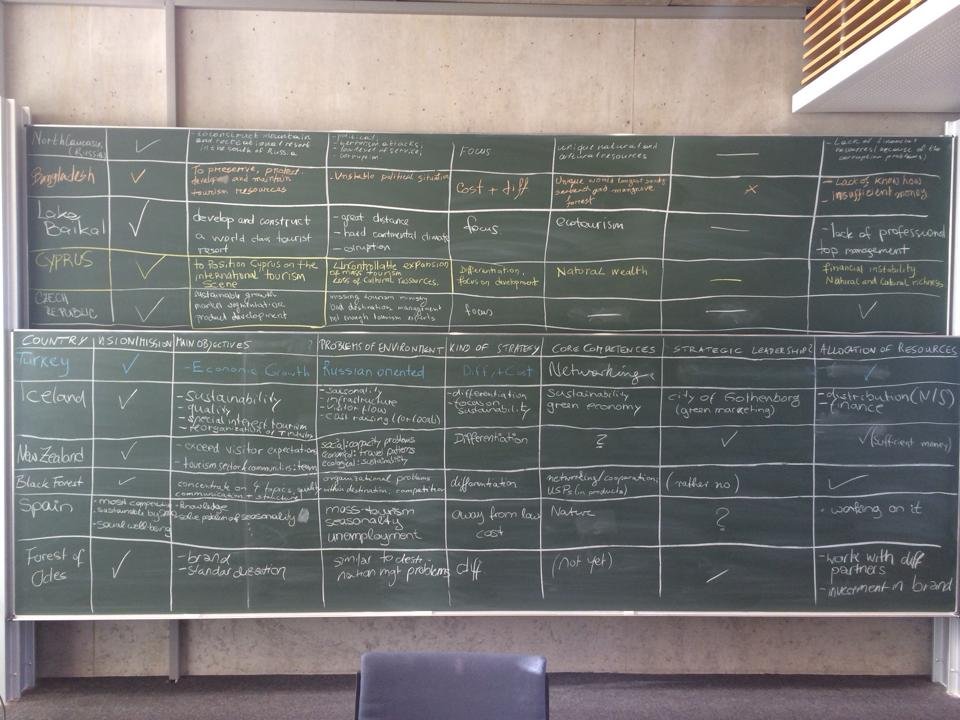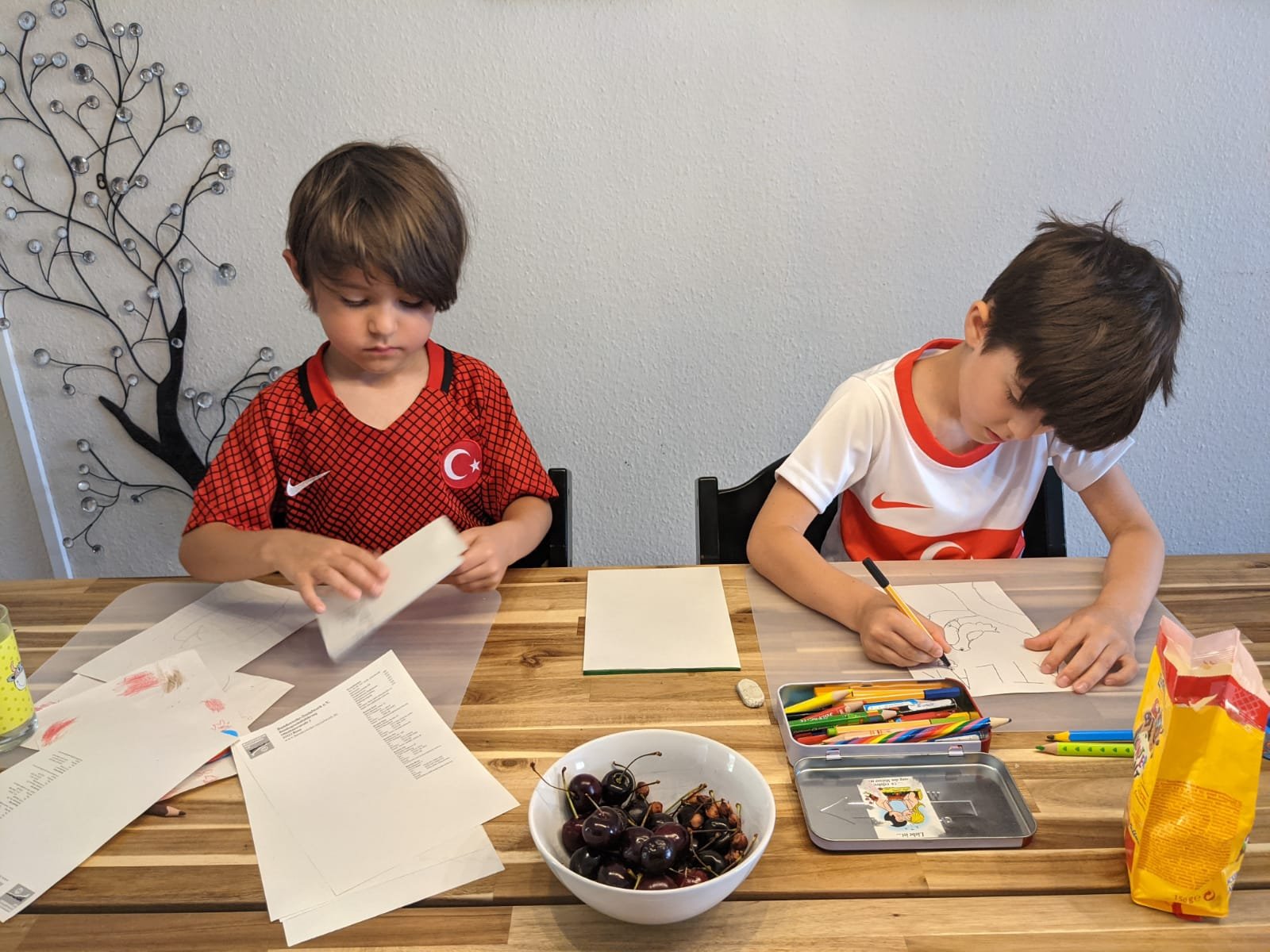Homeschooling Kids while Traveling
Traveling the world is a dream come true for many people. With kids this dream becomes even more unrealistic, that’s at least what society seems to tell us. In Germany the federal school law is very strict and puts an emphasis on teaching children inside an actual classroom. Nevertheless states interpret it differently. We have spoken to several families, for example, from Bavaria and Baden-Württemberg where a year of traveling can be seen as some kind of exchange program and might be accepted by the local principal. In our home state, Schleswig-Holstein, permissions cannot be granted by a school principal but by the educational authority or the ministry of education depending on the type of school that your children visit. To make it short: our kids are (luckily!) mentally and physically healthy enough to not get permission on missing classroom education for a longer period of time. Therefore we will have to deregister from Germany (actual moving abroad) so that German law will not apply to us anymore in terms of schooling.
Leaving our home country will bring a lot of consequences in the short-term (legally, financially etc.) but we also see the opportunities to not only explore new cultures, meet new people and create lasting memories but grow as individuals and tighten our family bond. So long-term we see more advantages than disadvantages.
Even though Laila, Emmet and Malik will not be sitting in a classroom, we do believe education is one of the most important gifts (and actually a right!) we can grant our kids. For that reason we will make sure to give them plenty of opportunities to learn - maybe even a little bit more than what they would learn at school. In other words: we plan on homeschooling our three kids on the road.
Here are our thoughts and actions so far in preparation of the upcoming homeschooling year. Maybe it can help you guide through a similar experience or give you some courage to change your mind about world traveling with kids - we strongly believe that world traveling with kids is totally doable.
1. Create a flexible schedule
From experience we know that when you're traveling, your schedule is likely to be unpredictable. You may not know how long you'll be in one place or when you'll be able to move on to the next. You may have long travel days and maybe even switch time zones. This can make it challenging to stick to a strict homeschooling schedule. Instead, create a flexible schedule that allows for changes and adjustments. For example, you might decide to homeschool for a certain number of hours each day but leave room for flexibility depending on your travel plans. For example we plan on usually teaching & learning every morning for 45min to 2 hours before going on explorations no matter whether it’s weekday or weekend, ordinary day or holiday. But this time frame could also switch to an evening session if an adventure needs to start early. When flying we would love to do some work first before indulging into onboard entertainment which can then be seen as a reward.
We believe that by making a regular effort to sit down and work on some math problems or improve hand writing as well as orthography will help us to install a habit - just like brushing teeth.
2. Use online resources
After talking to the kids’ teachers, we already have a pretty good idea about the topics that should be covered in each grade in Math, German and English classes which we consider the main subjects. We are familiar with the books that the kids used so far but we have already learned that the internet is our friend when it comes to homeschooling, too. There are countless online resources available from educational websites to virtual field trips and many are even free of charge. While we do have a few ebooks on hand, we can only recommend to take advantage of the online resources to supplement your curriculum and keep your kids engaged. We already love websites like National Geographic Kids (which also challenges our children because they have to translate it first to understand it) and Grundschulkoenig, a website that has already provided us with many worksheets although we are only in preparation mode, yet.
3. Incorporate travel into the curriculum
Probably one of the greatest benefits of homeschooling while traveling is the opportunity to incorporate real-life experiences into the curriculum. We definitely plan on taking advantage of the places we visit by incorporating them into our lessons: even though we do know what should be covered in History class, Biology etc., we are certain to exchange a few topics and adjust more to resources that will be available to us in different parts of the world. So instead of teaching about the influence of Greek history in nowadays Germany, we might try to learn something on the Indus civilization when we will be in India. Or when we visit Ethiopia, we intend to visit the National Museum of Ethiopia in Addis Ababa to see the 3.2 million-year old fossil skeleton “Lucy” because the kids just recently learned about the development of our human species. In case we make it to South America, we might try to study Spanish language even though it’s not on the kids’ curriculum.
4. Keep it fun
From all the preparation so far speaking, we can foresee homeschooling on the road to be a lot of work but we believe it doesn't have to be boring. We will try to keep our lessons fun and engaging by incorporating games, puzzles and other interactive activities. Nature walks, hikes and other outdoor adventure will be on our regular schedule simply because they will be fun so why not take advantage of the natural beauty around us then? After all that’s how humans have always explored - by getting outside (instead of just sitting at a desk). And the kids will make sure that we don't forget to take breaks. After all, our journey is all about exploring and having fun as a family!
5. Stay organized
One of the most important aspects of successfully homeschooling kids, we already see, is to stay organized. We do not want to fall into some kind of “vacation relaxation mode” and then let the kids live with the consequence after a year where they might have to repeat their school year in new classes. Luckily Andrea loves to plan and is an expert in structure and organization so it will be her job to keep track of lesson plans, materials and schedules. She has already prepared weekly schedules for Laila, Emmet and Malik for the entire year. We have digitized books and workbooks, downloaded digital tools and got each child an individual iPad as well as some writing pads and new pencils for the haptic experience.
We plan on staying in regular touch with class teachers and classmates to not loose social connection at home - apart from the fact that “writing a letter” is actually a topic in 4th grade in German class. But of course, family and friends want to stay informed at all times anyways; due to the experiences during the past pandemic, luckily the kids are already professionals when it comes to face timing etc.
All in all homeschooling while traveling with three kids may seem daunting but we are optimistic that with the right mindset and resources, it's totally doable. With the tips we tell ourselves - create a flexible schedule, use online resources, incorporate travel into the curriculum, keep it fun and stay organized - we should be able to provide our kids with a rich and rewarding education while exploring the world together. What are your thoughts on that? Do you have a different opinion or another hack that you might want to share with us? Please let us know in the comments below.






Saint Augustine: “The world is a book, and those who do not travel read only one page“
